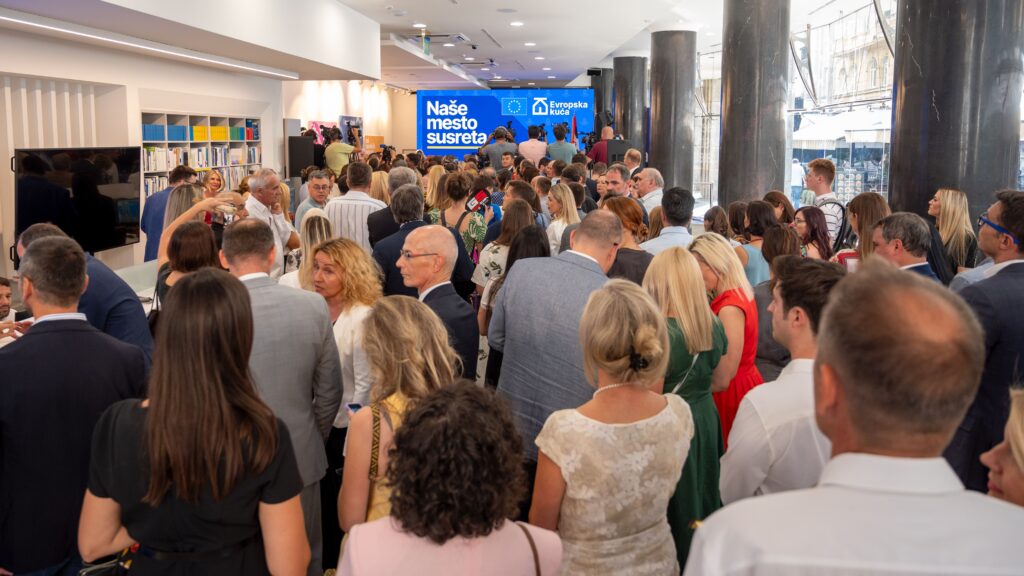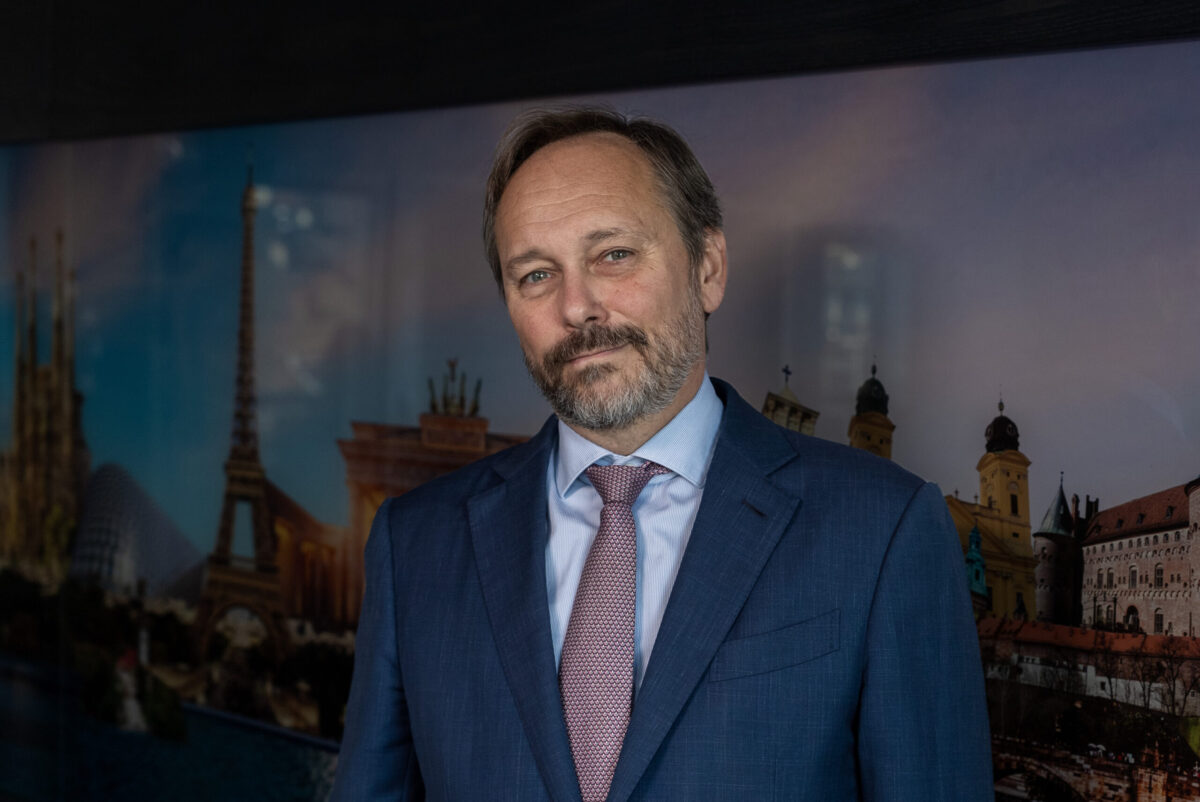The EU plays a crucial role in promoting prosperity, democracy, and shared values in Serbia
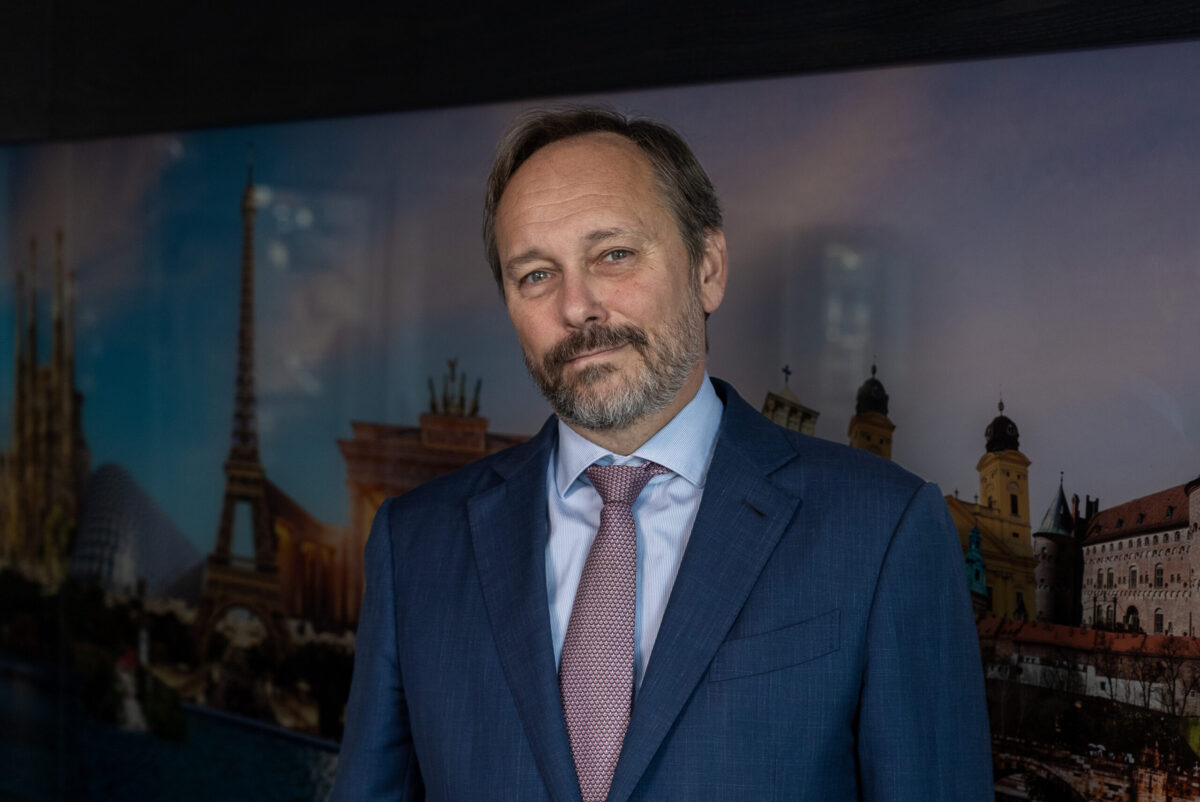 In this insightful interview, Emanuele Giaufret, the EU Ambassador to Serbia, reflects on the European Union’s significance both personally and professionally. He discusses the EU’s role as a symbol of freedom, peace, and prosperity, and its importance for Serbia’s future. Giaufret highlights the benefits of European integration, the shared values between Serbia and the EU, and the transformative potential of the EU Growth Plan for the Western Balkans. Through his perspective, we gain a deeper understanding of how the EU continues to shape the region’s path toward stability, democracy, and economic growth
In this insightful interview, Emanuele Giaufret, the EU Ambassador to Serbia, reflects on the European Union’s significance both personally and professionally. He discusses the EU’s role as a symbol of freedom, peace, and prosperity, and its importance for Serbia’s future. Giaufret highlights the benefits of European integration, the shared values between Serbia and the EU, and the transformative potential of the EU Growth Plan for the Western Balkans. Through his perspective, we gain a deeper understanding of how the EU continues to shape the region’s path toward stability, democracy, and economic growth
What does the EU mean to you and what does it truly represent, both professionally and personally?
Personally, the European Union is a symbol of freedom. I remember in the early seventies travelling as a child with my parents from Italy to France to visit my grandparents and our car was stopped by the customs official for a luggage inspection. Now that border crossing is no longer there. I saw in my youth the opening of the European space and the adoption of a single currency, I studied in France and Belgium, also with an EU Erasmus scholarship, and I witnessed the great enlargement to welcome the countries that embraced democracy after the collapse of communist dictatorships. Europeans have developed a strong feeling of common belonging while remaining proud of everyone’s national identity – unity in diversity as our motto goes. Professionally, the EU is the most successful peace project that has also brought unprecedented prosperity to EU citizens and strengthened our unique model that ensures social protection and high environmental standards. This project is anchored in democratic values, where democracy, human rights and protection of minorities, non-discrimination, media pluralism, rule of law, are essential pillars of our European identity. National interests still very much exist, but we manage to find compromises through dialogue and tough negotiations. Everyone knows that at the EU table, sooner rather than later, you will need the others’ support and there is a common interest to find solutions. In the world of today, dominated by geopolitical giants, individual member states are too small to count. Within the EU, climate change, the new technologies, such as Artificial Intelligence, security, international trade, and migration, just to name a few issues, cannot be successfully addressed by national governments alone. These are issues that require action at the EU level where we are stronger, we have the financial means, better diplomatic leverage and effective regulatory powers. The very sovereignty of individual member States is better defended by promoting the European strategic autonomy. The European project has evolved since the creation of the Coal and Steal Community in 1951, but it has remained as relevant because it offers the most adequate tool to address the challenges of the contemporary world. The basis of success lies in the efficient functioning of EU Institutions and unity of purpose among Member States.
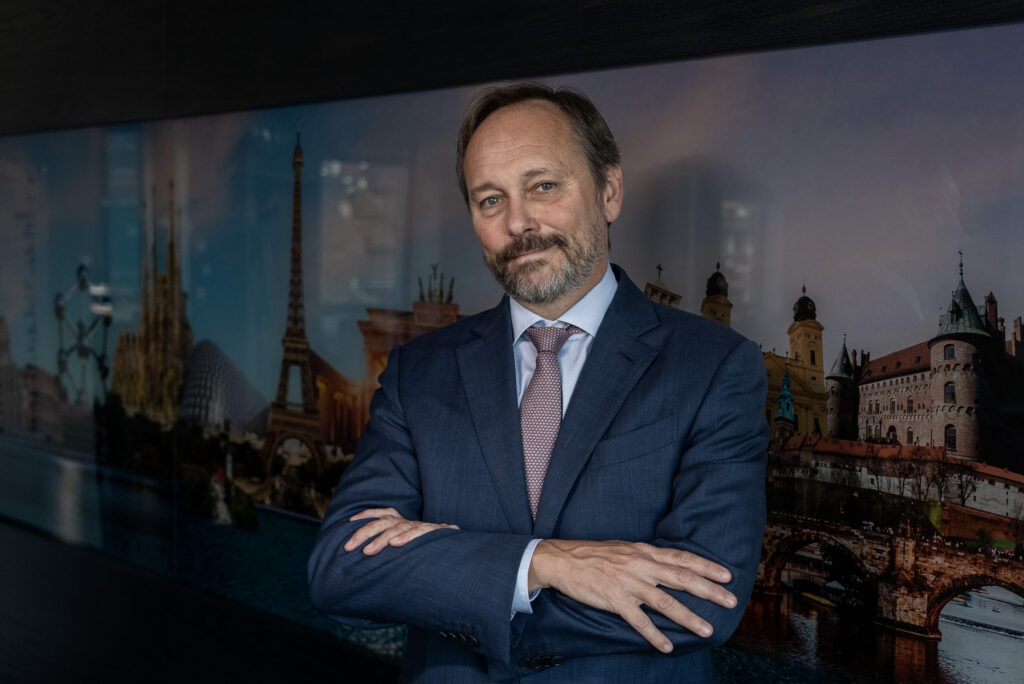 Why is it important for Serbia to join the EU and what would you separate as the main benefits of European integration for Serbian citizens?
Why is it important for Serbia to join the EU and what would you separate as the main benefits of European integration for Serbian citizens?
Serbia’s aspiration to join the European Union (EU) is crucial for offering its citizens the same level of prosperity, protection and democracy enjoyed by their fellow Europeans in EU member States. EU membership will bring many practical benefits: freedom to move, work and study in the EU, economic opportunities through trade and access to larger capital markets, to provide and receive services from across the EU. In addition, it will bring EU standards on consumer protection, environment protection, and product safety, ensuring a higher quality of goods and services for all citizens. The EU promotes strong governance, transparency, and the rule of law. Serbia’s accession process involves significant reforms which are to the benefit of Serbian citizens. Democracy and the rule of law will be strengthened through reforms of the judicial system, and public administration, and more efforts to combat corruption and organised crime. Finally, once an EU member, Serbia will receive significantly higher financial aid through the EU’s structural and cohesion funds, which are aimed at reducing economic disparities among regions. These funds could be used to improve infrastructure, education, healthcare, and rural development. Integration into the EU would bring better job opportunities and potentially higher wages, as businesses benefit from increased market access and foreign investment.
European integration already provides numerous benefits for Serbia and its citizens. Now, with the Growth Plan, we are offering some important benefits even before membership. The EU Growth Plan for the Western Balkans will boost the region’s economic growth and increase the socio-economic convergence of the Western Balkan region with the EU.
The region’s average GDP per capita currently stands only at 36% of the EU average. The Growth Plan will help the Western Balkans to narrow this gap. It has the potential to double the economies of the Western Balkans within the next decade.
The Growth Plan for the Western Balkans is based on four pillars. Firstly, enhancing economic integration with the European Union’s Single Market. For example, entering the Single European Payment area to reduce the costs of financial transactions. This will allow to save 500 m Euro per year for the Western Balkans
Secondly, boosting economic integration within the Western Balkans through the Common Regional Market. as a stepping-stone to the opportunities of the Single Market.
Thirdly, accelerating reforms, and finally, increasing financial assistance to support the reforms through a new performance-based financing instrument worth €6 billion, the Reform and Growth Facility for the Western Balkans.
The EU is the most successful peace project that has also brought unprecedented prosperity to its citizens
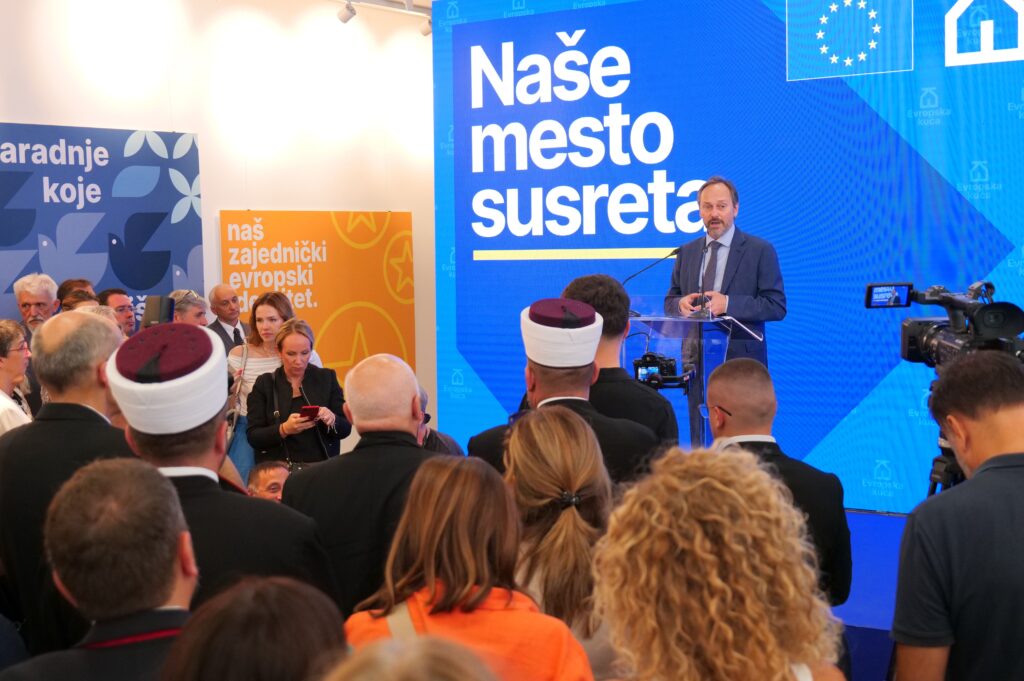 What European values are shared by the Serbian people as well? Which bonds tie us together as Europeans?
What European values are shared by the Serbian people as well? Which bonds tie us together as Europeans?
European values are also Serbian values, they come straight from the Enlightenment and Serbia contributed to shaping these values, for example with the Sretenje Constitution. These values are about human dignity, democracy, human rights, the rule of law, social justice, and respect for cultural diversity. Like many European nations, Serbia has undergone a transition toward democracy, particularly after the fall of authoritarian regimes in the 1990s. The Serbian people share the European commitment to democracy, where competitive elections, pluralism, and political participation are essential elements. One of the core European values is respect for the rule of law, which ensures that laws are applied fairly, that the judicial system is independent, and that no one is above the law. Serbia, through its EU accession process, will have to strengthen its legal institutions and align them with European standards, reflecting the common belief in justice and fairness as well as on the other topics I mentioned. I am sure there is support for freedom of the press, the rule of law, democracy, human rights as well as peace and stability.
Where does Serbia currently stand on its path of European integration? Is the pace at which it’s moving along satisfactory or is there still room for improvement?
There is a new momentum in the enlargement process. The Russian war of aggression has created a new reality. We have new candidates, Ukraine and Moldova and a new determination by the EU to accelerate the enlargement after years when it had lost its dynamism President von der Leyen has announced a dedicated Commissioner for Enlargement in the next EU Commission. We are preparing the EU to host new members and candidate countries need to accelerate their preparations to become new members not to lose this historical opportunity. Serbia needs to accelerate reforms. The European Commission’s annual country report indicates what needs to be done.
Serbia’s aspiration to join the European Union is crucial for offering its citizens the same level of prosperity, protection, and democracy enjoyed by their fellow Europeans in EU member states
What plans does the EU have for the future? Which goals will be considered a priority for the next couple of years?
I suppose this is about the EU reforms, strategic autonomy, industrial policy etc…
Inside the EU we will of course follow the Political Guidelines of the new European Commission. We will further deepen the single market, fight climate change, pursue further digital transformation, increase our border security and work further on common defence issues to increase our strategic autonomy to name just a few subjects. Boosting the competitiveness of European industry will also be high on the political agenda and we will prepare the EU from inside to accept new members.
Concerning EU Enlargement, we will be further supporting candidate countries meeting the accession criteria to be able to join the EU sooner, than later. In this regard, our new Growth Plan itself is a tool that will provide further support to that end.
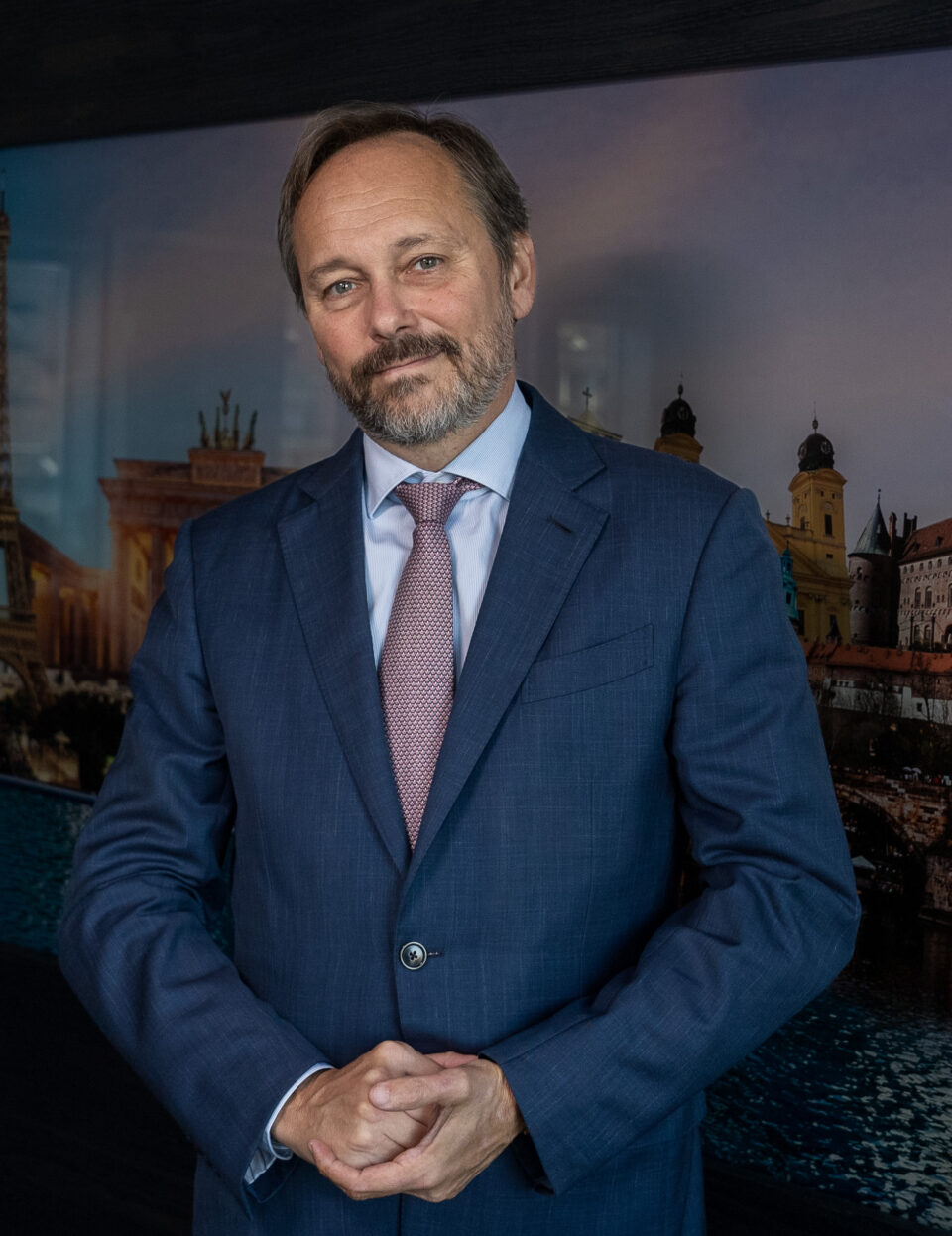 What can the Western Balkans expect from the EU and its expansion policies?
What can the Western Balkans expect from the EU and its expansion policies?
President Ursula von der Leyen has laid out her Political Guidelines which I mentioned before and which I recommend to have a look at – a dedicated Commissioner for Enlargement which is a clear sign of our determination to move on enlargement. The EU will engage even more strongly with Serbia. We need to accelerate reforms. Progress on the Rule of Law and Democracy will remain essential. And we also need to continue to work hard on the normalisation of relations with Pristina, this will require the implementation of the agreements reached in the past, including the Agreement on the path of normalisation of 2023. We need to shape a common vision of our shared future and strengthen our coordination and convergence on security and foreign policy. Increase the integration of our economy and our industrial value chains. I read sometimes that the agreement on critical raw materials signed with the European Commission has a colonial flavour it is exactly the contrary, it is an agreement to expand the Serbian industry and value chain by Serbia benefitting from its natural resources in line with the highest environmental standards in the world. As with everything we do, we work in partnership and ultimately it is up to Serbia to decide.
The EU Growth Plan for the Western Balkans will boost the region’s economic growth and increase socio-economic convergence with the EU
The new Europe House recently was opened. What can we expect from this Europe House?
The new Europe House is much bigger than our previous location in the centre of Belgrade, the EU Info Center which is now closed. Now we have a new space which is bigger, better and much better situated in the very heart of the pedestrian zone of Kneza Mihaila. It will be a vibrant hub where education, technology, discussion, art and innovations merge & promote EU values and where we have a prestige facility to offer a stage to young talented & active citizens, partners and stakeholders who are interested in the EU and where one can learn about the EU.
